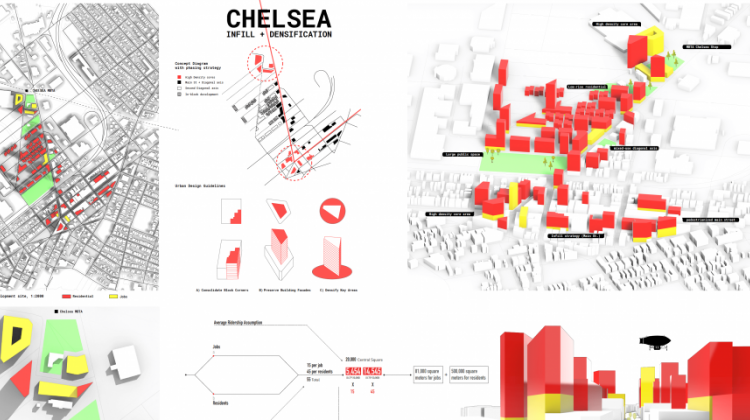Measuring Urban Design

In the spring term of 2020 students from the Department of Urban Studies and Planning and the Harvard Graduate School of Design gathered for a course offered at MIT, the Workshop on City Form. The Workshop on City Form leveraged complementary strengths of urban design, urban planning, and computer science to create a set of key performance indicators for urban design. Their process and findings have recently been published in a report, Urban Design Performance Indicators. The workshop was led by MIT City Form Lab’s director, Andres Sevtsuk, in collaboration with Sidewalk Lab’s Generative Design team.
A Key Performance Indicator (KPI) is a measurable value that demonstrates how effectively a design is achieving key objectives. The KPI’s produced by the Workshop on City Form suggest how we might integrate new metrics for the next generation of design tools and software when examining urban form. While each KPI focused on analyzing a particular dimension of urban design - such as the perception of density, pedestrian accessibility, or the experience of history in the built fabric - human expertise allowed the team to incorporate critical considerations such as complicating factors, secondary impacts, and higher-level goals.
Student led discussions and explorations allowed critical questions to be integral to KPIs, such as: how might the change to the spatial layout of a street network impact the equity of access to parks across all residential units in a design; how might an increase to project density change the contextual fit of a new development into its surrounding neighborhood; or, how might the selection of a buildable parcel enable the flexible adaptation of a development to uses to accommodate an uncertain future?
To test the proposed KPIs, student teams developed a range of different urban form and land use proposals for two pilot sites surrounding Commuter Rail stations in Chelsea and Lynn, MA and worked around an iterative design–analysis–redesign process to improve the design outcomes with KPIs.
Students included Carmelo Ignaccolo, Dylan Christopher Halpern, Shuyun Wu, Woowon Chung, Ruben Morgan, Patrick Meredith-Karam, Yueheng Lu, Naksha Satish, Camila Huber, Olivia Serra, and Aziz Alhassan. Kloe Ng was the teaching assistant and guest critics included MIT’s Hashim Sarkis, Nicholas De Monchaux, and Rafi Segal as well as Sidewalk Lab’s Amelia Harvey, Betty Chen, Brian Ho, Saif Haobsh, and Violet Whitney.


